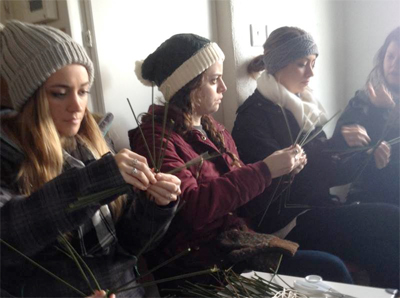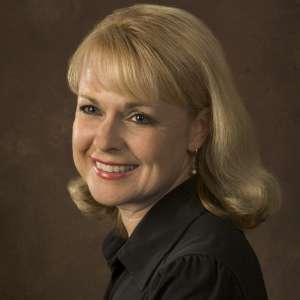Sociology Students Study Ireland—in Ireland

It’s no secret: Education is most effective when it extends beyond the classroom and into the real world. That’s why sociology professors Margaret Walsh and Irish-born Niall Moran took 24 students to Ireland and Northern Ireland for two weeks last January as part of the class, The Sociology of Ireland and Northern Ireland. “The main aim of the trip was to solidify and improve upon the knowledge learned in the classroom through direct experiences on the ground in Ireland and Northern Ireland,” Dr. Moran explained. “We also hoped that the students would be challenged to adapt to a different culture, albeit one not too radically different than the US.”
The travelers spent five days in Dublin studying urban issues and four days in Galway addressing rural issues. Their learning encompassed political and historical issues, including ancient Irish culture and traditional crafts and, of course, the Great Famine. They also visited Northern Ireland, where they focused on Belfast and the many issues surrounding the Troubles and the more recent peace and reconciliation process. “We engaged with a local NGO, CRIS, who try to connect Protestant and Catholic children, and focused on efforts to move on from the Troubles, instead of the more normal preoccupation with the violence of the past,” Dr. Moran said. “We also met with victims of the Troubles and their relatives and listened to their memories and wishes for a better future for the people of Northern Ireland.”
“This sociology course integrated insights from history, politics, economics, and culture,” Dr. Walsh said. “As we traveled, we relied on maps, conversations, signs, styles of architecture, modes of transportation, and museums to see the place from a variety of perspectives. Students wrote papers about tourism, immigration, and globalization in the 21st century.”
The student travelers certainly understood the extra value this educational opportunity offered them. “This trip went way beyond the classroom because the students were able to experience Ireland hands on and talk to the people, and see the overall culture, the trip created memories that we can hold onto and remember better than trying to recall facts from a lecture or a book,” said Emily Murphy.
Speaking to residents of Northern Ireland was especially essential to understanding the political and historical issues in that divided land. “The group was given a crash course on the inner workings of the vast community betterment projects that are going on in a still very conflicted part of the world,” said student Bradley Snide. The students heard from people on both sides of the Catholic/Protestant divide, which helped them truly understand feelings that are still very strong. “These images and passionate stories above all left the most lasting impression on me,” Snide said.
If you’d like to delve deeper into the trip, check out the group’s travel blog.





